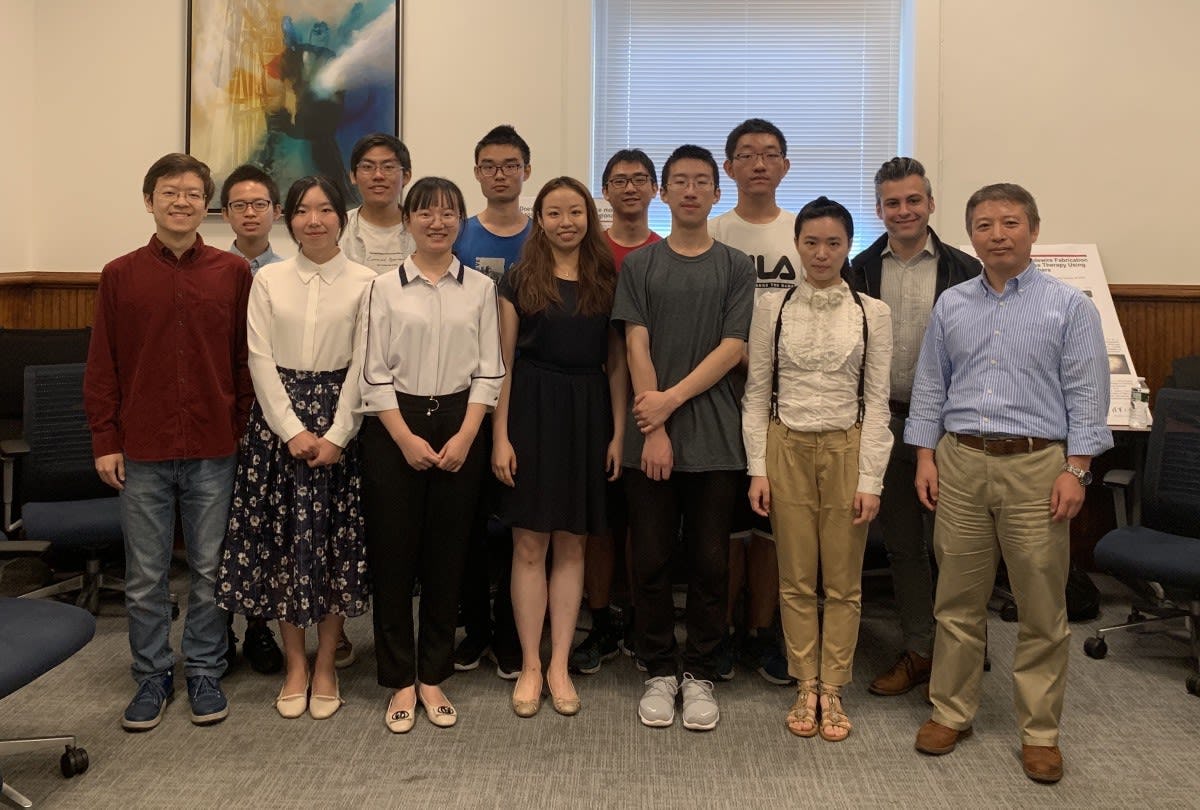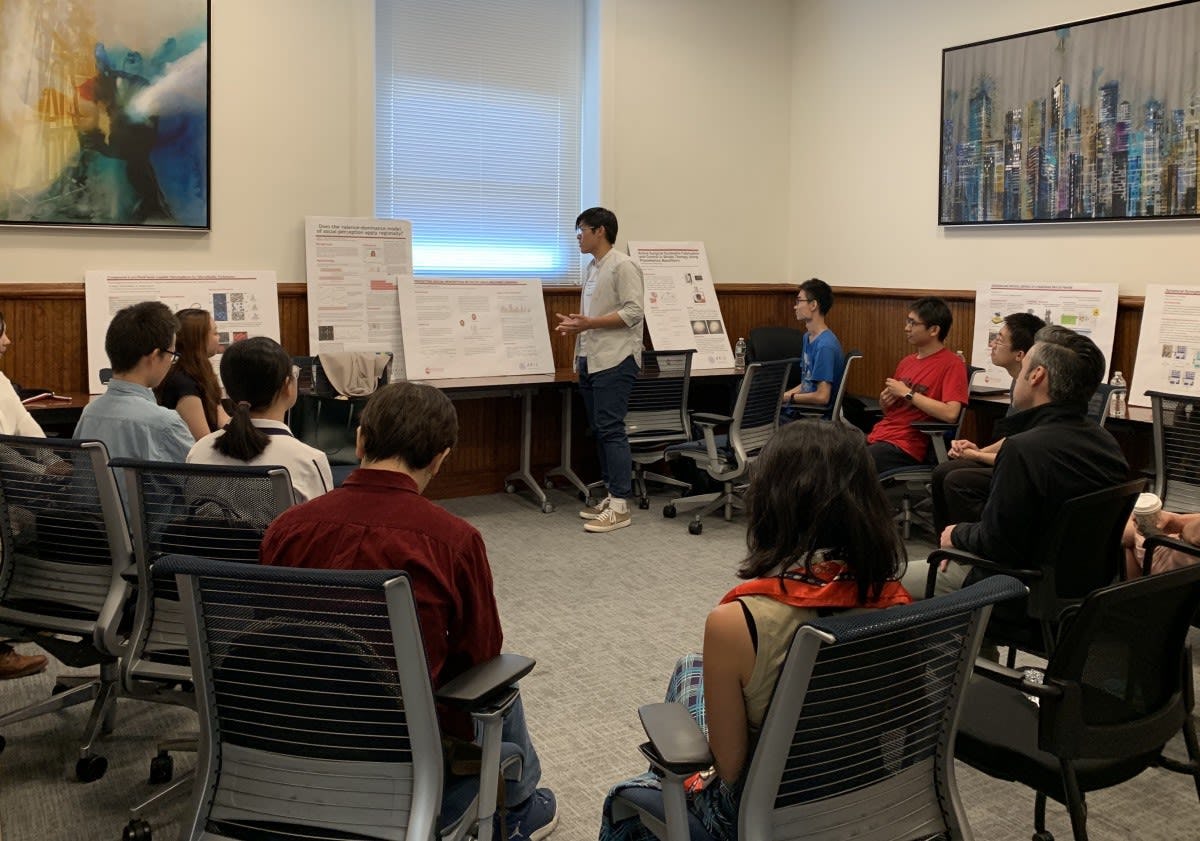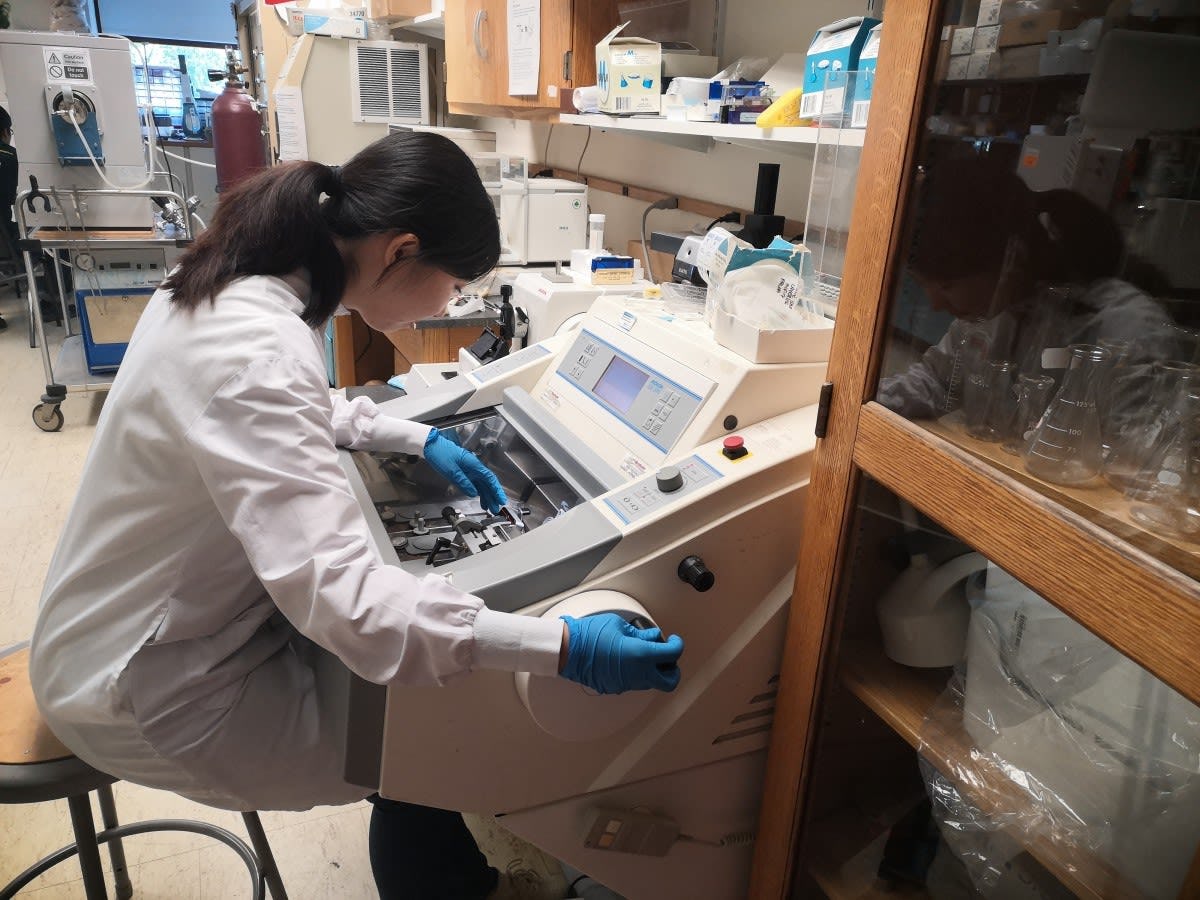Tsinghua University Exchange Students Learn Valuable Collaboration and Critical Thinking Skills Under Stevens Faculty Mentorship
Laboratory experience prepares students to become better researchers
The second Tsinghua University Summer Research Program at Stevens Institute of Technology brought ten new undergraduates to the Schaefer School of Engineering and Science for eight weeks during summer 2019. Students experienced life at Stevens and in America, learned new ways to approach their research while studying under Stevens faculty, and explored opportunities in nearby New York City.
“We were pleased to welcome the second group of Tsinghua exchange students this summer,” said Jean Zu, dean of the Schaefer school. “This program is one of many opportunities for collaboration that Stevens prides itself in. The students all proved to be exceptional young researchers, and we could not be happier with the work they did here.”
“The students worked very hard,” said program coordinator Alexis Zhang. “Their posters were very impressive, and they only had eight weeks to complete these achievements. We really enjoyed having them here.”
Participating in the exchange program were ten undergraduate students: Congxi Huang, Enning Liu, He Jiajun, Jiayi Li, Song Keyu, Lin Wang, Linhan Du, Liqiong He, Tianxiao Hao, and Yunkuan Cui.
Each student worked closely with a faculty advisor to explore a specialized area of interest in the laboratory. For many, being in a new environment challenged them to approach research questions in new ways.
“As an undergraduate student, I didn’t have much experimental experience, so I enrolled in this program to see what it’s like to work in the lab,” said biomedical engineering student Lin Wang. She worked with professor and biomedical engineering department chair Hongjun Wang to study microfluidic techniques for cancer treatment. “Dr. Wang gave me some very important suggestions and taught me new methods. It’s been a fantastic experience, and I think this program gives me the confidence to continue my research back in Tsinghua.”
Biomedical engineering student Song Keyu studies signal processing at Tsinghua, and he wanted to explore this topic in more depth at Stevens. He worked with assistant professor Ramana Kumar Vinjamuri to study hand grasping movements, with the aim to advance the rehabilitation of individuals with hand disabilities. “The summer exchange program isn’t only a way to experience living in the US, but it is also a way to experience real research in the lab with an individual project,” he said. “I found that the way people do research here is different from the way in my homeland. Here, we can start and end projects in a more individualized way.”
Mechanical engineering student Liqiong He worked with professor EH Yang on a project called “In situ iron doping of tungsten disulfide monolayers,” with the aim to develop and refine new materials for data storage. She found research in the US to be more collaborative than in China. “We have a lot of big projects here that I felt a part of,” she said. “I learned how to communicate with others in a group, and I learned how to complete teamwork. In China we have less contact with each other.”
Jaiyi Yi majors in clinical medicine at Tsinghua, but she has a strong interest in cognition, which is not commonly studied in China. “In the US, I can access more research here with my professor, and I can broaden my horizons to new fields like sociology and machine learning,” she said. She worked in the Center for Decision Technologies in the School of Business with assistant professor Jordan Suchow studying face evaluation and social perception. Their valence–dominance model explored how, when subjects study a person’s face, their perceptions of trustworthiness and dominance can predict other traits.
“Back in China, we have a very serious atmosphere in the lab, and the professor tells us what to do and we follow straight instructions,” Yi said. “Here the professor focused on our individual interests, and he taught us how to improve our projects in an individual way and think critically. The professor and I were like friends, and he really helped me.”
“This experience here helped me make clear what my research interests are,” Li continued.
Beyond the summer exchange program, dean Zu and Tsinghua administrators have plans for establishing joint Ph.D. and co-Ph.D. programs, as well as dual M.S. degrees. Zu is spearheading this initiative.
Next summer Stevens will welcome a new group of Tsinghua students, building upon the success of the first two summer exchange programs.
The program is part of a cooperation agreement between Stevens and Tsinghua University. Tsinghua is exploring joint and co-programs with SES in cybersecurity, artificial intelligence, deep learning, sustainability management, and construction management. Dean Zu is the champion of this partnership.




